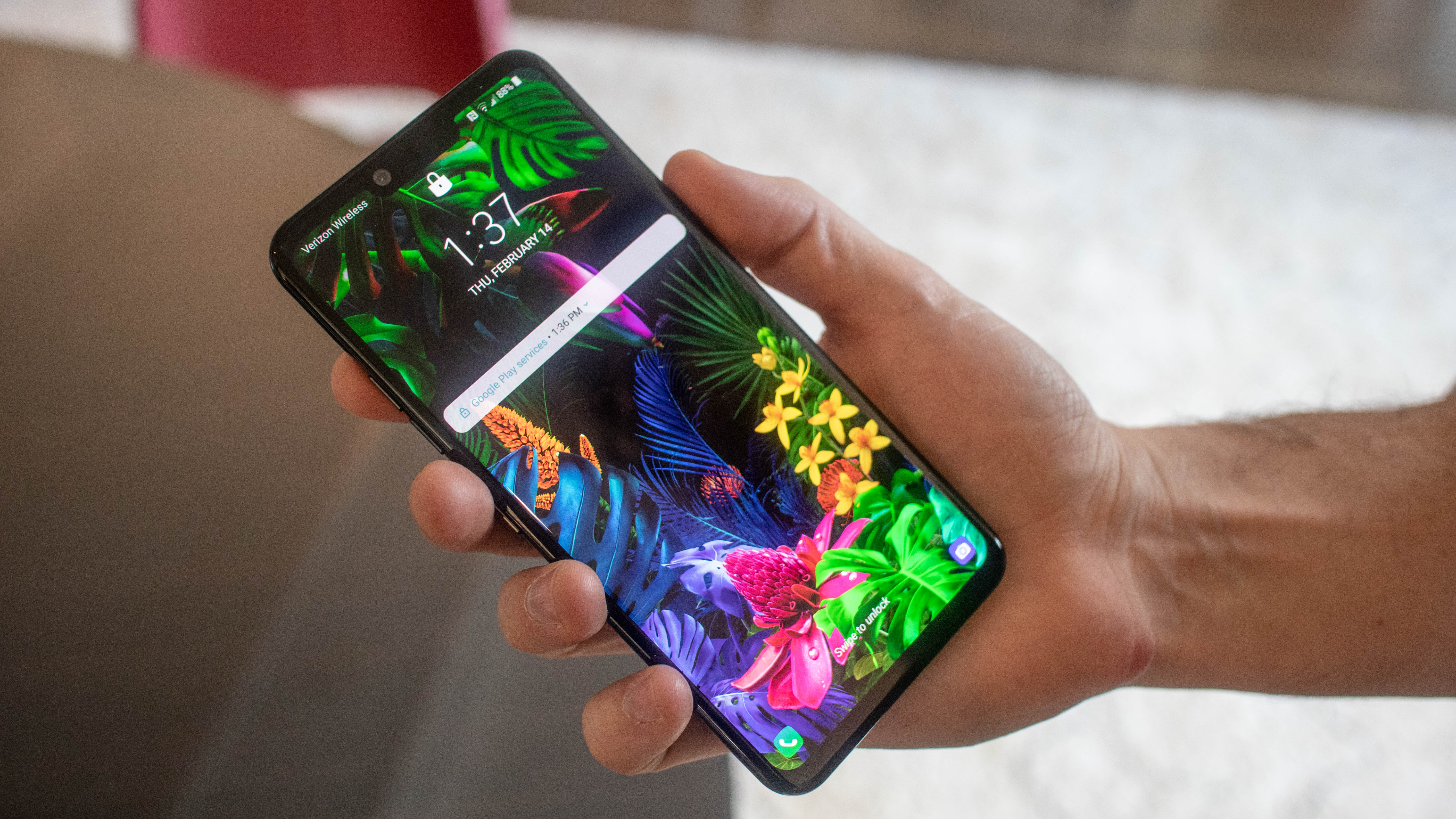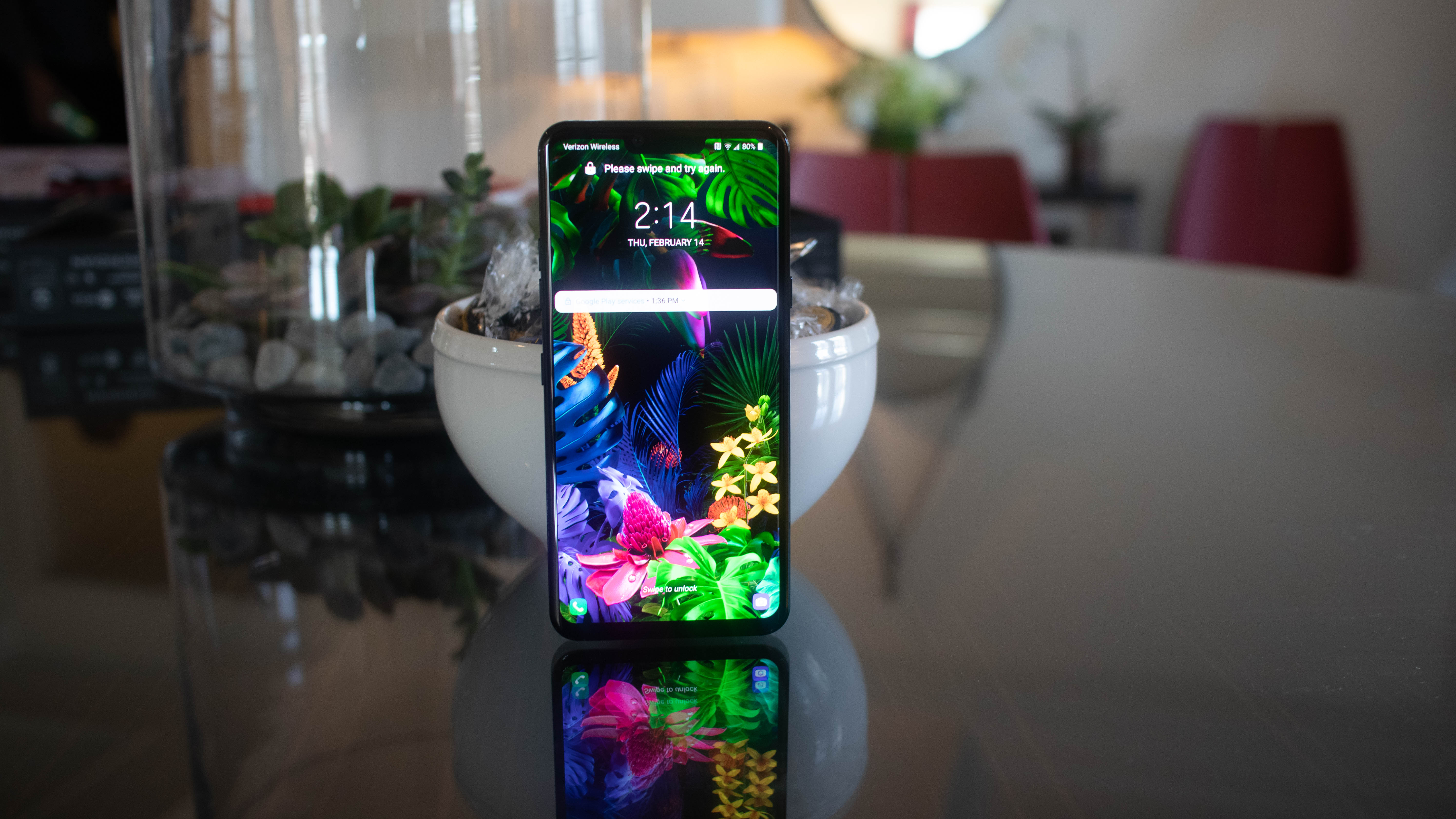LG G8’s top feature is exactly why brands shouldn’t ‘innovate’ just because they can
A key distraction from actually useful features

Over the last five years, we’ve watched as biometric unlocking of phones has become more and more popular, moving from fingerprint to facial recognition until we saw the LG G8 launched at MWC 2019… letting you unlock the phone using just the veins in your hand.
It’s a nice idea if you’re petrified of your phone being stolen and hacked - LG claims that there’s a one in a billion chance of someone having the same vein formation as you.
Fingerprints can be spoofed with enough effort, faces remodelled to get in (or just grab a twin) but the veins in your hand… that’s going to be a nightmare for the bad guys looking to take your life.
So LG has taken the next step in smartphone innovation? Technologically, yes… but in practical terms, absolutely not.
It needs to just work
The key thing that’s been missed here is usability. When Apple launched FaceID on the iPhone X it did so to skip using a fingerprint scanner at all, and in the demonstration area it kept failing. If this wasn’t fixed before launch, then Apple was about to have a monstrous failure of an iPhone.
Fix it, it did though, and crucially Apple made it super speedy as well. It’s so fast that you won’t notice you’re unlocking your phone half the time, until you try and gain access when holding something in your mouth and you can’t work out why your phone is angry at you.
The same with fingerprint scanners: whether on the front or the back, muscle memory will quickly make it a seamless entry.
Sign up for breaking news, reviews, opinion, top tech deals, and more.
I can’t see how the same will be said for Hand ID, where you have to hover your hand over the phone at the right height to gain entry to your mobile life. It’s not a natural action, and in the demonstrations on stage it seemed to take a second to actually open the phone.
That’s too long. LG said that the average user will open their phone over 100 times a day, so this new Hand ID unlock method is going to cost its customers a minute or two every 24 hours. That’s not even taking into account the fact the irritation this irregular action will bring.
(It should be said that, while multiple journalists noted issues with the tech in the demos, that these phones are running pre-production software and thus Hand ID's speed may be enhanced before launch).
The technology that lies beneath Hand ID is impressive, and is probably going to be rolled out to more phones in the future. Time of Flight (ToF) sensors measure distance accurately by sensing the rebounding light, meaning a very detailed picture of what’s in front can be built up.
LG looked at this and decided to also use it for a feature called Air Motion, a way of controlling your phone in the same way as unlocking the phone: holding your hand a specific distance above the screen.
LG used some examples here of where this might be useful: driving or cooking, for instance. Well, let’s skip past the driving option as that’s still taking focus away and isn’t a safe way to do things. It would be OK if you didn’t need to check if your hand was being registered, but that very much looks like the case here.
With cooking, it does make a bit more sense, even if it’s rather specific as a scenario. (Actually, the LG G8 looks like the ultimate cookery phone, as the Boombox technology, which uses the surface the phone is resting on to enhance the sound. It’s pretty cool).

Well, it would be a better scenario, but for something like watching a YouTube video you’ll still have to touch the screen to find it. So that kind of negates things.
Hand ID and Air Motion instantly reminded me of a car crash technology from years ago: Air View in the Samsung Galaxy S4, another example of a brand doing something just because it could. It too used gestures to navigate through the phone, letting you swipe your hand over the camera to scroll through photos.
(There was an excruciating demo on stage to launch that phone, where a group of ladies had all painted their nails but couldn’t look through their photos. AIR VIEW TO THE RESCUE!...of the world’s biggest non-emergency of all time).
The same Samsung phone allowed you to scroll through web pages by nodding your head in an exaggerated manner. I remember vividly trying to do it, then just scrolling through the phone with my finger with so much more ease. It was like being able to touch the screen to interact was the new tech that solved a problem, not the other way around.
Unsurprisingly, Samsung quietly discontinued that technology - but that didn’t stop LG referencing how much better and accurate its implementation was.
Sure, it’s more accurate, but it doesn’t address the main problem: that it’s a hassle compared to just, you know, touching the screen. Something like this needs the phone to be hooked into your brain to work out when you want to do it with your hand... and if it could do that, it could just use your brain to interact anyway.

This is a long-winded way of getting to the main point: that by making this the headline technology, LG is hiding some great, and more attractive, stuff in its phone. The Boombox feature that I mentioned earlier is so impressive, and combined with the Quad DAC inside, really punches out incredible sound.
The LG G8 doesn’t have a front speaker, as it uses the screen itself to emit the sound with something LG borrows from its highest-end TV line: Crystal Sound. That’s really cool and actually useful as it improves the quality and gives one fewer points for water ingression.
The LG G8 can also capture video and automatically blur the background, in the same way as still portrait photos, in real time. That’s incredible - plus it records in 4K and in HDR10.
It’s still got a headphone jack. It’ll likely have decent battery life as many of its phones do, and the camera performance was strong Yeah, other brands can do these things, but not a lot of phones have it all tied up together.
While LG still has work to do in marrying all these great features together (the interface is still a bit too cumbersome and offers too many features in one place) it needs to either make sure the headline innovation is genuinely useful and solves an actual problem, or just make a phone that’s just so damn good at the basics.
It’s not impossible to do, either. Google has come from nowhere with the Pixel range to be considered one of the best smartphones on the market, just by having an industry-leading camera married with clean Android. There’s no reason LG, with its vast resources and knowledge, couldn’t do the same.
Perhaps Hand ID will be improved dramatically in the next month or two before launch - as mentioned, we were looking at phones running pre-production software.
But unless it becomes flawless (I’m talking being able to wave my hand at my docked phone while driving to change the track without ever having to take my eyes off the road), it’ll be redundant tech.
LG has talked about regaining its place in the smartphone game - it just needs to work out what consumers really want or need. That means great cameras, incredible battery life or next-generation design - and stop trying to wave its hands around to seem innovative.
MWC (Mobile World Congress) is the world's largest showcase for the mobile industry, stuffed full of the newest phones, tablets, wearables and more. TechRadar is reporting live from Barcelona all week to bring you the very latest from the show floor. Head to our dedicated MWC 2019 hub to see all the new releases, along with TechRadar's world-class analysis and buying advice about your next phone.
Image Credit: TechRadar

Gareth has been part of the consumer technology world in a career spanning three decades. He started life as a staff writer on the fledgling TechRadar, and has grew with the site (primarily as phones, tablets and wearables editor) until becoming Global Editor in Chief in 2018. Gareth has written over 4,000 articles for TechRadar, has contributed expert insight to a number of other publications, chaired panels on zeitgeist technologies, presented at the Gadget Show Live as well as representing the brand on TV and radio for multiple channels including Sky, BBC, ITV and Al-Jazeera. Passionate about fitness, he can bore anyone rigid about stress management, sleep tracking, heart rate variance as well as bemoaning something about the latest iPhone, Galaxy or OLED TV.